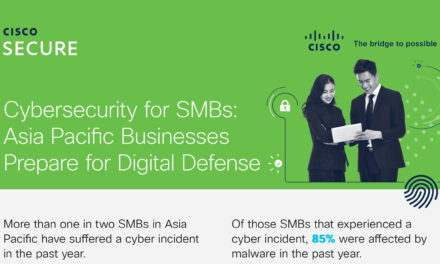Familiarize yourself with five aspects of expanded and/or new cyber threats and trends so as to reduce complacency and boost vigilance.
Since 2023, attackers have been moving away from traditional endpoint-style attacks to infiltrate network infrastructure. For example, the MOVEit breach was potentially one of the largest data breaches from a single instance of a vulnerability we saw, that affected many organizations.
This breach could have laid the path for more critical zero-day mayhem in 2024. Threat actors will see networks as a soft target, and this indicates that they will continue to exploit this as organizations struggle to stop lateral movement. Once attackers gain a foothold, they can move in a way that they cannot be detected, and can do very significant damage.
As more organizations embrace new generative AI (GenAI) initiatives this year, they will need to balance that speed of innovation with governance and greater accountability. We must also continue to look at what we really mean by ‘AI’ and look into how applied and adaptive AI can advance our security practices, helping us to find the right signals in a vast array of data.

Following are our five cyber predictions for 2024:
-
Security endpoint breaches will decline as downstream defenses rise
Traditional security is akin to building a higher and higher wall to keep out intruders, but once the intruder is inside it is very difficult to catch them. In 2024 expect a rise in breaches where attackers exploit an existing vulnerability and are able to move laterally through a network. Security incidents will move away from compromised endpoints, ushering in a new era of threats primarily targeting federated identity systems, public clouds, and business-email-compromises. This new breed of attacks will exploit the vulnerabilities and relative immaturity of security practices related to cloud, identity and SaaS applications.
-
GenAI will power next-level phishing and social engineering attacks
Phishing attempts will be more convincing, malware creation more efficient, evasion of security measures more effective, and social engineering attacks more personalized — making it harder for traditional security tools to detect and intervene. More specifically, GenAI tools will be enabling attackers to be smarter, more personalised, reach more victims in numerous languages, on a more massive scale. The response to this will largely revolve around organization-wide awareness and education, with AI-supported security, extended detection and response and Zero Trust also playing an important role.
-
GenAI will help mitigate the cybersecurity talent shortage
For example, GenAI can provide a toolset and rapid insights into security challenges and appropriate responses, by compiling a vast amount of information and assimilating it into proposed solutions or approaches. This is especially pertinent as the cybersecurity talent shortage grows, and experts are hard to come by. Greater support via AI systems is also expected to help attract more talent to the industry. It is also important to note the difference between GenAI and applied or adaptive AI. While the former may have useful application, the latter is what drives true transformational change from a security standpoint.
-
More organizations will understand more of the nuances of cybersecurity
In recent years, the Zero Trust has emerged as a dominant focus in the cybersecurity landscape. However, zero trust is not a countermeasure, it is a strategic approach that is aspirational because it is inevitable that organizations will have to manage network access by external entities. In 2024, there will be a rise in organizations understanding the difference between Zero Trust and the necessity of implementing robust security measures designed for this modern world, such as extended detection and response, as compared to EDR.
-
CISOs will be welcomed into Boardrooms
In 2024, cybersecurity will be a strategic priority that can no longer be siloed-in. Gartner has predicted that by 2026, 70% of boards will include at least one member with expertise in security, so that everyone at the table will have to understand the reality of threats and what is required to mitigate them. In turn, this will help organizations to move beyond reactive defence and act on the benefits and change that come with being cyber-prepared.





















